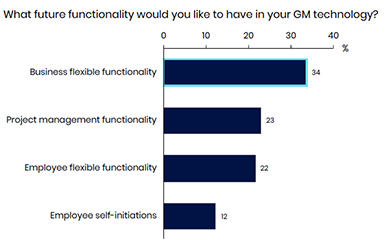Few would dispute that 2020 was a tough year. With both COVID-19 and the ongoing uncertainty surrounding Brexit, the year tested the ability of corporate mobility programmes to advise and support their global talent.
Businesses found it challenging to follow every rule and regulation of the evolving national and regional lockdowns, as they pushed to initiate new business-critical deployments or repatriate employees and their families.
Many mobility teams have performed well despite these pressures. They’ve strengthened partnerships with business leaders, talent and corporate security and occupational health teams – and might even have received visible praise across the organisation for their efforts.
At the same time, mobility teams and their vendor partners have been stretched to the limit and have had to act with sensitivity, agility and flexibility to meet employees’ needs. The increasing demands have strained resources and revealed shortcomings in current mobility processes and technology.

As we continue to navigate the evolving situation around the pandemic and understand the implications of the recently signed Brexit Trade Agreement, we need to ask, ‘How can mobility teams sustain their efforts and continue to meet business and employee needs?’
Relying on manual processes, spreadsheets or legacy systems will not provide the flexibility and efficiency businesses require to navigate future risks, whether that’s another pandemic, a political shift or a new business initiative, such as entering a foreign market. For mobility teams to succeed now and in the future, they need modern technology that’s both automated and agile.

Alternative work arrangements increase mobility demands
Global mobility software will help mobility teams cope with the additional demands that organisations are placing on them.
In order to ensure the wellbeing and safety of employees overseas, teams must be flexible and discreet in delivering benefits and allowances based on the needs of each individual’s situation. Looking ahead, business leaders will demand the same levels of service in constructing appropriate packages to support existing deployed talent, and to attract and encourage future mobility in the workforce.
Mobility teams are also being asked to devise new policies, provide relocation support and mitigate risks for new working setups. This includes overseas employees working from home; higher demand for project work and commuting as fewer employees want long-term traditional assignments; and posted workers and permanent international transfers wanting to work closer to their families and home country.
Automated and agile solutions are needed

Mobility technology that features automation will play an increasingly important role in allowing businesses to respond to these demands. Automation enables the operational efficiencies that are essential for providing the best advice and relocation package support.
Technology must also be agile enough to meet the changing needs of businesses. In a recent survey by the Global Mobility Executive (GME) and Equus, over two-thirds of respondents said flexibility was an essential feature of global mobility technology.
Equus’s AssignmentPro technology offers a variety of self-service tools that empower both the business and mobile employees to choose their allowance preferences.
AssignmentPro’s HR landing Experience enables mobility teams to quickly view the status of all of their overseas talent. It also allows teams to easily run cost estimates for proposed assignments and to create all the necessary documentation for new deployments.
Core-Flex policy configuration empowers employees to manage their relocation packages based on their personal preference. The tool also visually depicts key metrics – such as total mobility cost – by business or function, to assist with planning and support data-driven decision making.
Similarly, Equus’s Mobile Employee Experience allows workers to select from benefit options and to initiate requests with the global mobility team, whether for additional support or for a new assignment or transfer. The tool also makes it easy for mobility teams to review requests from employees wanting to work remotely overseas, and to track and deliver compliance support or risk management outcomes.
2020 delivered more than its share of challenges for global mobility. Given that the only certainty now is that more uncertainty lies ahead – at least in the short term – mobility teams require modern technology to ensure they’re prepared to support their global workforce in a world that’s in flux.
Click below to see a demo of Equus’ AssignmentPro technology and find out how to add more flexibility & agility to your program. Request A Demo













